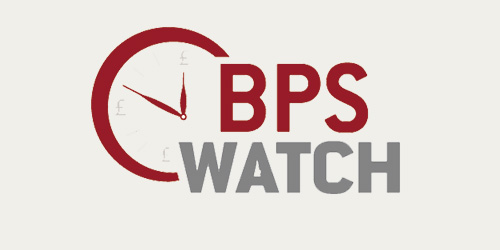MPs slam Defra over late farm support payments
 © XYZ Pictures/Imagebroker/Rex/Shutterstock
© XYZ Pictures/Imagebroker/Rex/Shutterstock The government’s record on farm support payments does not inspire confidence in its ability to cope with the challenge of Brexit, say MPs.
Defra had failed to assess the effect of delayed subsidy payments on farmers – and failed to do enough to mitigate the implications, said the Public Accounts Committee.
The conclusion comes in a report examining delivery of the Common Agricultural Policy (CAP), the European framework of subsidies and rural development programmes.
Defra has overall responsibility for the CAP and the Rural Payments Agency (RPA), which pays out £1.8bn/year in farm support to English farmers and landowners.
See also: Agency pays 2016 basic payment to 93% of farmers
The committee said the extent of the RPA’s failure to pay farmers in England on time and in full was “now clear” and details the failings in its report.
Defra should use better data and ensure “accurate, full payments are made in a timely manner” in the current payment window and to restore previous performance levels for 2017-18, it added.
Improve understanding
In addition, Defra must improve its understanding of the effect delayed payments have on farmers and the wider rural community, said the committee.
It also raised concerns about disallowance penalties, imposed by Brussels on Defra for not complying with EU scheme rules.
It said these remained “far too high”, at a level above those for nearly all other EU countries.
Committee deputy chairman Richard Bacon MP said: “Farmers have suffered badly from the collapse in service levels and government has done too little to help them cope with the fallout.
“At the same time, taxpayers continue to be hit in the pocket by financial penalties arising from the government’s failure to deliver the scheme properly.”
These penalties ran to more than half a billion pounds for England in the current period.
Mr Bacon said: “If farmers are to be properly supported through Brexit and beyond, it is vital their interests are represented at senior level.”
Disallowance penalties
The committee said leaving the EU did not absolve the department from ensuring the current high level of disallowance penalties does not continue.
It recommended that the RPA was “at the table” to support discussions of any future subsidy payment scheme to farmers following Brexit.
And it warned: “The department’s record of failure when developing systems to support subsidy payments to farmers does not inspire confidence in its ability to cope with the challenges associated with Brexit that lie ahead.”
NFU vice-president Guy Smith said: “It’s reassuring to see the committee agree with our concerns over issues such as accuracy of mapping, which is clearly continuing to haunt the system.
“It is also pleasing to hear them lay down a clear recommendation to Defra that over 90% of accurate BPS payments should go out in the first few days of December.”
Defra said the government was working to improve the system and ensure that farmers received the support to which they were entitled.
The Rural Payments Agency had already met its target to pay 93% of farmers by March 2017, and was working hard to get outstanding payments into bank accounts, it said.
Leaving the EU was one of many opportunities to design a better system that supported farmers and reduced unnecessary red tape.
BPS Watch – keeping tabs on payments
 Ongoing delays in 2015 support payments caused huge cashflow problems, stress and anxiety for thousands of farmers.
Ongoing delays in 2015 support payments caused huge cashflow problems, stress and anxiety for thousands of farmers.
That is why Farmers Weekly has launched “BPS Watch”, designed to hold Defra and the Rural Payments Agency to account for their promises.
Our initiative – which will also cover Scotland, Wales and Northern Ireland – will focus on farmers and feature regular stories and payment updates, as we strive to keep government departments and agencies on track.
